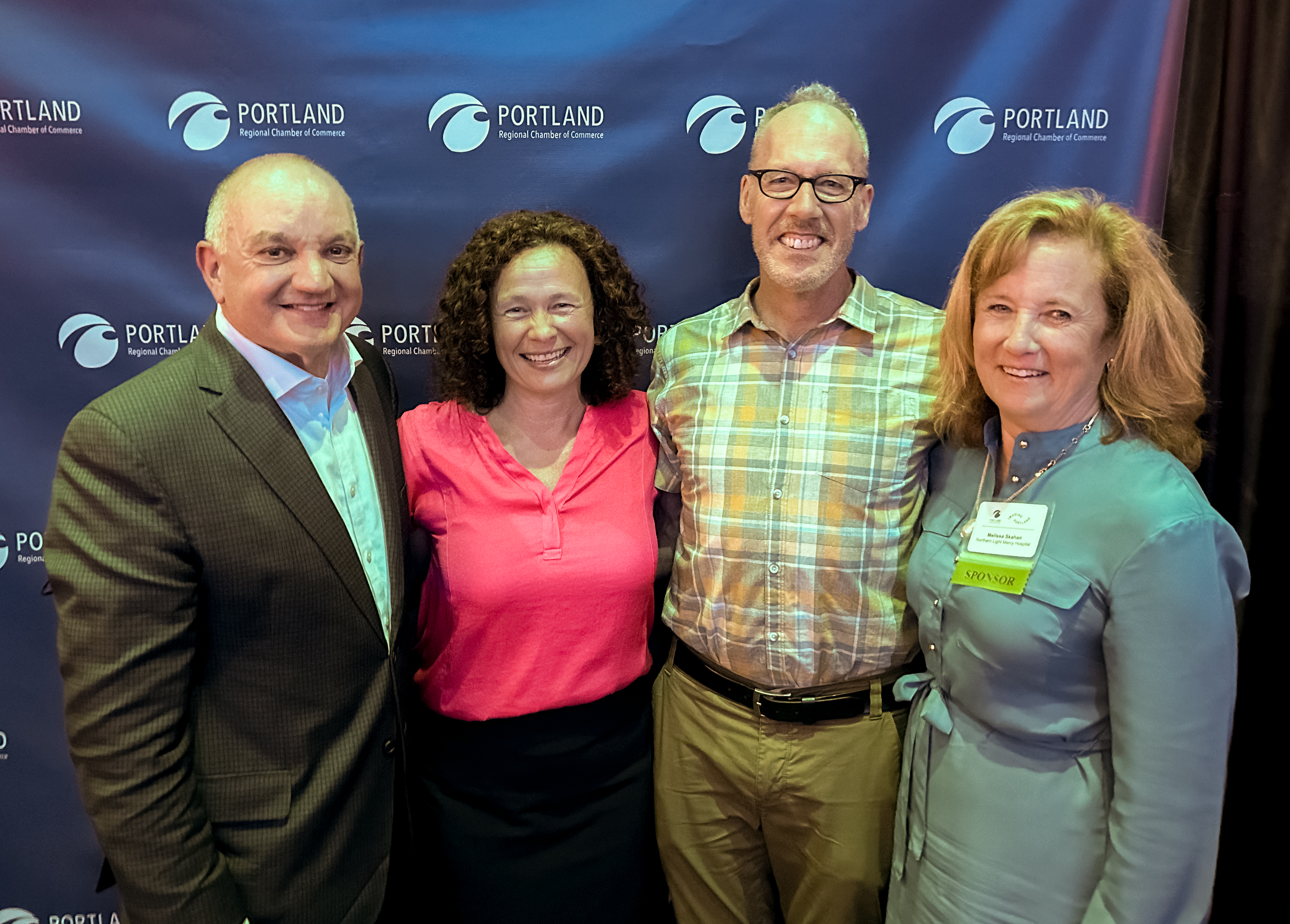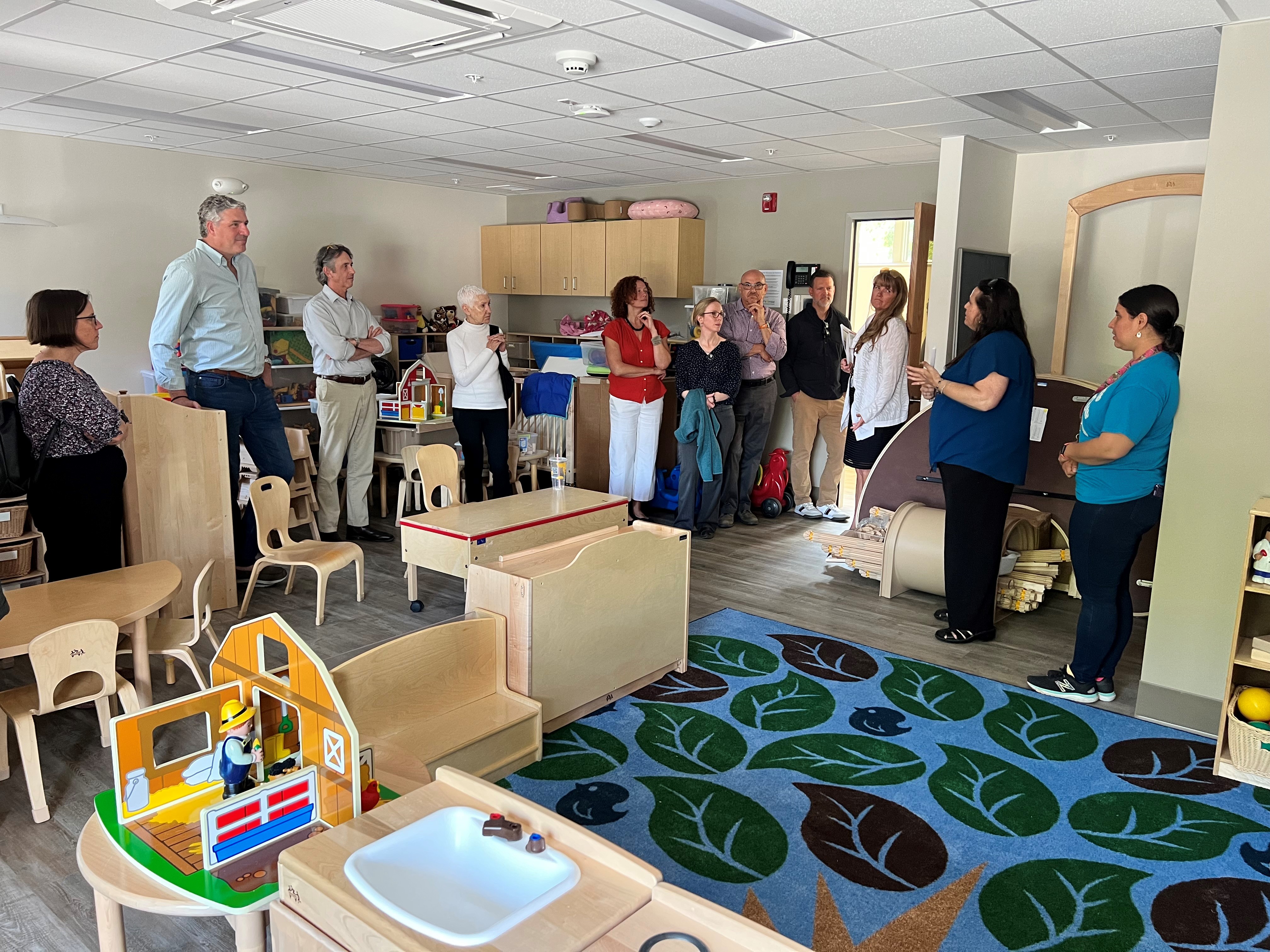John T. Gorman Foundation: Working with the System to Make Change Possible
Striving to uplift Mainers, the John T. Gorman Foundation identifies gaps, takes strategic risks, and works with partners to strengthen systems outcomes.
At a former convent in Portland, Maine, the air hums with children’s laughter and the clinking of meals being prepared in the communal kitchen.
Those sounds bouncing across the halls of the Frances Warde House would have been unimaginable in June 2023, when Maine officials turned to the John T. Gorman Foundation with an urgent plea: Portland was facing a high number of expectant mothers experiencing homelessness, particularly women of color. With shelters and emergency housing at capacity, many went to hospital emergency rooms with pregnancy-related health complications and pre-term labors. The need for immediate relief was dire.
“We had helped in emergency responses before with shelter space and hotel rooms,” said Nicole Witherbee, President and CEO of the John T. Gorman Foundation. “But that’s not our core mission. So we asked ourselves, how can we do something meaningful and lasting?”
The question led to the creation of the Frances Warde Initiative, a partnership between the Foundation, Northern Light Mercy Hospital, the nonprofit In Her Presence, the State of Maine, and Community Housing of Maine. The Initiative, a groundbreaking collaboration to improve health outcomes for unhoused mothers of color and their infants, provided solutions.

John T. Gorman Foundation President and CEO, Nicole Witherbee, with partners from Northern Light Health and Community Housing of Maine.
It takes a village
As a private foundation dedicated to strengthening the well-being of children and families, the John T. Gorman Foundation has long prioritized partnerships to address systemic issues. So when City of Portland officials reached out, the foundation turned to Northern Light Mercy Hospital, a partner that had been looking to expand its outreach to communities of color in the wake of COVID-19.
“When you look at maternal mortality, infant mortality, and birth outcomes for women of color, the disparities are staggering,” Witherbee said. “We saw an opportunity to work together to support these pregnant women and improve the quality of care.”
According to a 2024 March of Dimes report card for Maine, pre-term birthrates among Black women were 1.2 times higher than the overall pre-term birthrate, and the infant mortality rate for Black babies was 1.5 times the state average.
An inactive convent close to Northern Light Mercy Hospital, equipped already with communal spaces, was identified as an ideal option for supporting pregnant women and their children. The Sisters of Mercy, inspired by the mission of the Frances Warde Initiative, sold the building at a reduced price, and the Warde House soon opened its doors.
Today, the group In Her Presence manages the Frances Warde House, and what once stood as sanctuary for mother superiors and their stoic sisters now stands as hope and a fresh start for women and their children. The building currently houses 15 families but has served more than 30 over the last two years.
The Initiative provides transitional housing alongside pre- and postnatal care, pediatric services, and trauma-informed support. Residents also benefit from onsite doulas, nutrition and prenatal education, social connections to each other and the community, and the transitional support they and their children need to thrive after they leave the residence.
“You can't make change for a child if the caregivers don’t have the tools and resources they need,” Witherbee said.
At an October 2023 summit, the foundation team met with families and parent advisors who support both children and their caregivers to improve whole-family outcomes.
A focus on change
Witherbee stresses that the foundation’s role is not to replace government or large institutions but to do what others can’t. With no bureaucracy to navigate, the foundation can test bold ideas, adjust strategies in real time, and share successful models for broader impact.
“We have the ability to be flexible, pivot quickly, and take risks,” Witherbee said.

Foundation staff and board visited an expanded classroom at a local childcare provider in Lewiston, Maine, to learn more about the improvements in housing, health, and youth programming in a historically underserved neighborhood.
The Tree Street neighborhood in Lewiston, Maine, is a case study in the strategy. When Witherbee learned that 11% of children in the city of Lewiston neighborhood had elevated lead levels, she saw a systemic failure. The foundation stepped in, funding consultants to help city officials apply for lead reduction grants, commissioning research to determine the most affected households, and identifying unexpected funding opportunities like the U.S. Department of Housing and Urban Development’s (HUD) CHOICE neighborhood initiative.
Misty Parker, who worked with the City of Lewiston’s economic development office, said the approach wasn’t just about funding but was also about collaboration.
“They respected our process, supplemented our work, and didn’t tell us how to do it,” Parker added. “That balance made all the difference.”
Lead poisoning rates in Lewiston dropped from 11% to 2%, and screening rates are now the highest in the state. More importantly, the community has sustainable systems in place to maintain its progress. Recognizing this achievement, HUD, in partnership with the Council on Foundations, honored the John T. Gorman Foundation with the 2024 HUD Secretary’s Award.
For Witherbee, success isn’t measured in individual projects but in shifting systems.
“If something isn’t working, let’s change it until it does,” she said. “Because the worst thing is leaving a family stuck in ineffective programs.”



